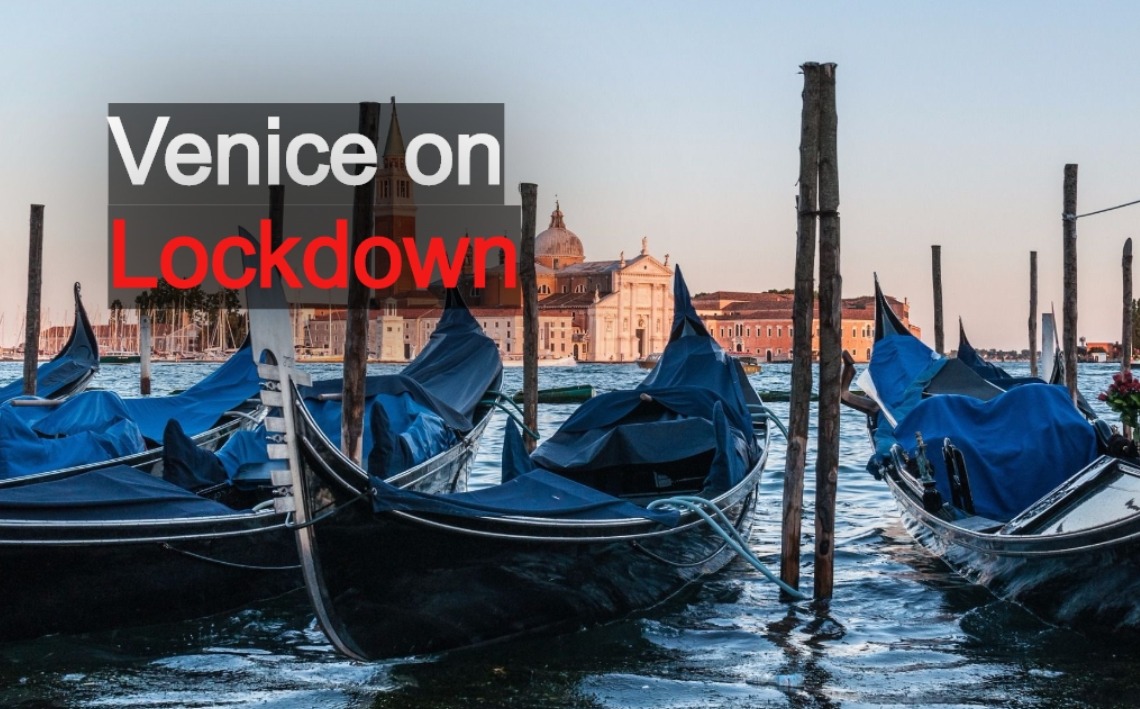Venice on coronavirus lockdown: Much-needed break from overtourism?
While it is hard to find positives when people’s lives are at stake, the lockdowns triggered by the coronavirus outbreak might be a good thing for some cities.

Coronavirus outbreak is spreading fast globally even as China recovers from the disruption. Total cases in South Korea and Italy have crossed 7,000 while as many as 6,566 people are infected from the coronavirus in Iran.
More than 110,000 people have been infected by the coronavirus across the world and over 3,000 people have died.
The outbreak has also prompted lockdowns and emergencies in various parts of the world including the New York state and Saudi Arabia’s Qatif province. The Italian government also imposed a lockdown in northern parts of the country on Sunday, strictly limiting movement in and out of the red zone which includes the tourism hub Venice. The action was prompted by rising infection cases as the country reported the second-highest coronavirus toll in the world and also reported a sharp jump in deaths, from 133 to 366.
While it is hard to find positives when people’s lives are at stake, the lockdowns triggered by the coronavirus outbreak might be a good thing for some cities.
The famous canals of Venice have been quiet in recent days and empty gondolas are becoming a common sight as the ‘City of Water’ comes to grips with being cut off from the rest of the country.
The tourism problem
The tourism sector of Europe is expected to take a major blow due to the outbreak and if trends continue, Italy, the hardest-hit country in the region, would be at the frontline.
But the same sector had become a headache for the native residents who have to endure massive overcrowding and increasing pollution due to the massive cruise ships that pass through every day.
While Venice’s tourism is booming and it brings significant economic benefits, the city has often been in headlines in the past few years for issues like the destruction of local life and environmental degradation due to 'overtourism'.
On various occasions, tourists outnumber the 55,000 residents in the historical city of Venice, which is already significantly lower from 175,000 residents during post-second-world-war years.
Residents have often protested on streets and in waters, with one of the most dramatic being the “No Grandi Navi” (No Big Ships) protest in 2016, when locals took to the Giudecca Canal in small fishing boats to block the passage of six colossal cruise ships.
More and more residents are leaving the city as living costs surge due to increasing tourism and authorities face a tough task to keep the city sustainable and intact.
Venice is also drowning, literally, as the sea levels rise. Floods, which are although not uncommon, have also become more frequent and severe. Venice’s issues are often attributed to the massive inflow of tourists, which deplete resources of the city, generate huge amounts of waste and overstretch the infrastructure of the city.
Impact of Coronavirus
Thousands of people are canceling their journeys to Europe and many airlines have also suspended their flights to Italian cities due to the coronavirus outbreak. The outbreak is costing the European Union’s tourism trade USD 1.1 billion a month, according to Thierry Breton, the EU’s inside market commissioner.
While the impact can be felt across all of Europe, Italy is the hardest-hit with many countries issuing travel advisories to their residents against visiting the country.
The Italian government has also made it harder for tourists to enter the country with increased screening measures at all its airports. As part of the lockdown measures in impacted areas, all arriving passengers will need to justify their travel to the impacted areas. Cruise ships will also be forbidden from docking in Venice, with only passengers who are residents of the Renaissance city allowed to disembark.
These measures, triggered by the coronavirus outbreak, are letting residents see Venice in a way that authorities couldn’t.
Tourism revenue, however, is also the backbone of Venice and the government is expected to bring the sector up to pace as soon as possible. But the short downtime might be what the city needed and might also serve as a wake-up call to the government to finally introduce long-pending measures to save the city.
(Disclaimer: The opinions expressed are the personal views of the author. The facts and opinions appearing in the article do not reflect the views of Devdiscourse and Devdiscourse does not claim any responsibility for the same.)
- FIRST PUBLISHED IN:
- Devdiscourse










